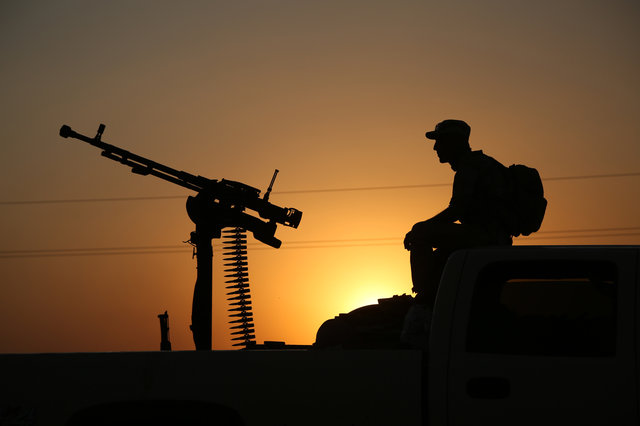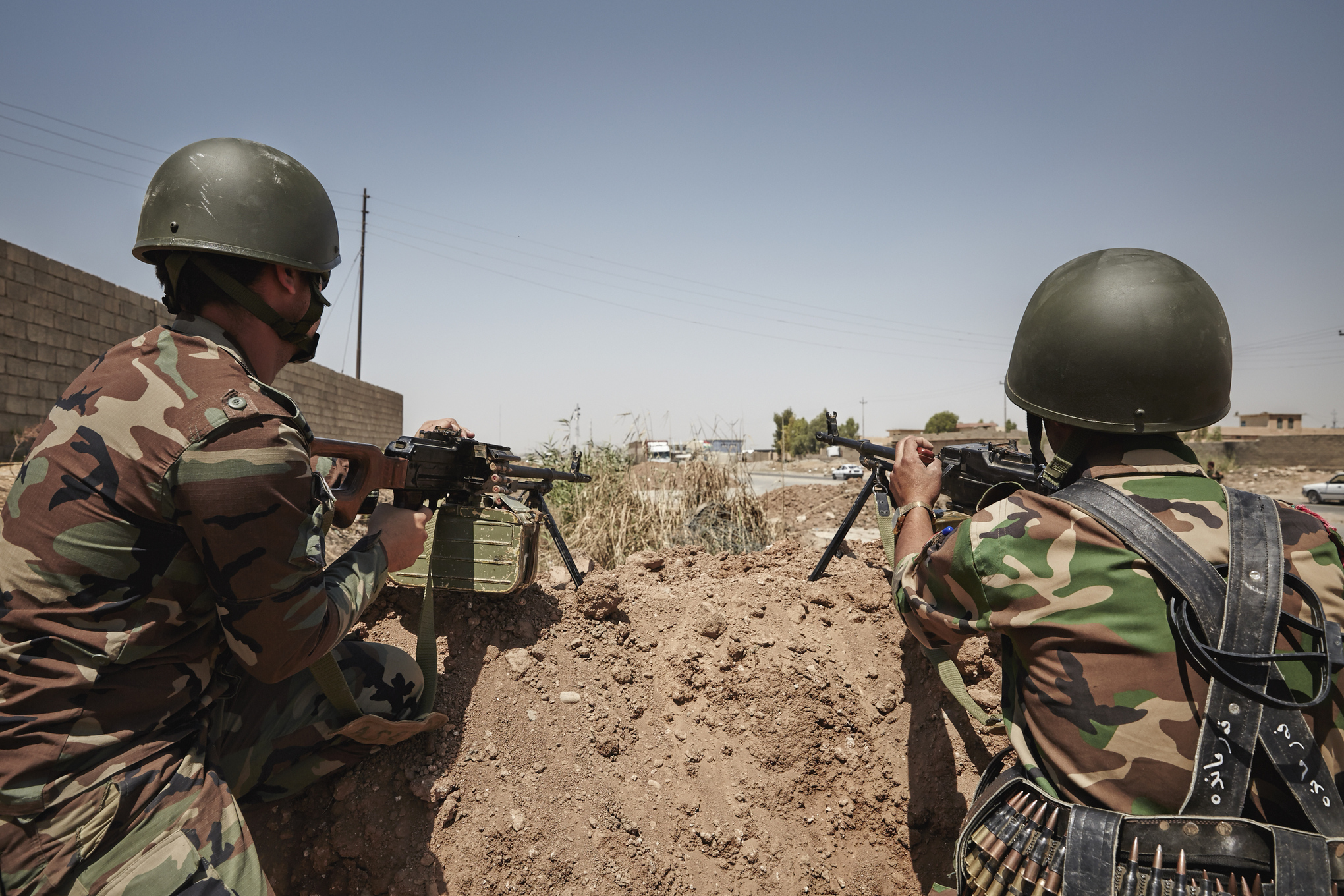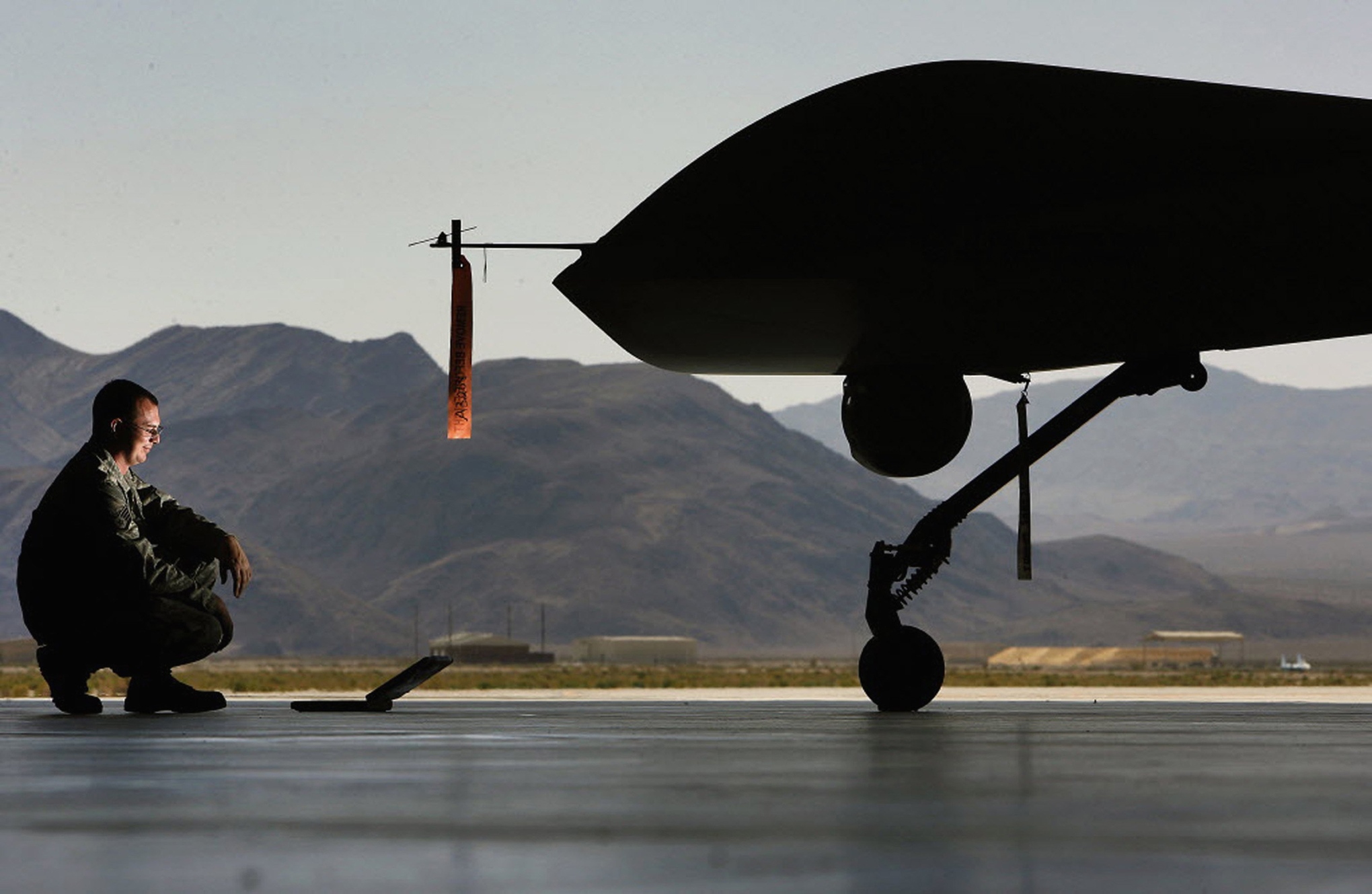Why Obama just authorized air strikes on ISIS in Iraq

President Obama announced on Thursday that he had authorized the US military to launch air strikes against ISIS militants in Iraq if they threatened the Kurdish capital of Erbil or the thousands of Yazidi minority civilians trapped on Mount Sinjar, both in northern Iraq. "When many thousands of innocent civilians are in danger of being wiped out, and we have the capacity to help, we will take action," he said.
Obama also announced that the US would airlift emergency humanitarian assistance into parts of the country. Why now? What in Iraq has led Obama to this point?
The key reason is that the Islamic State, the militant group better known as ISIS, has made major advances in northern Iraq in the past week. ISIS has swept into territory it had previously barely approached, posing a serious threat to American interests in a Iraq and creating a major humanitarian crisis. Here's a guide to what happened, and why it's prompting threats of American air strikes now.
This was all prompted by battles between ISIS and the Kurds

Peshmerga fighters. Sebastiano Tomada/Getty Images
They key cause of all of this is ISIS' somewhat surprising advance into territory held by Iraq's Kurds. The Kurds are an ethnic minority group who control a largely autonomous part of northeastern Iraq. The Kurdish military, called peshmerga, are well-trained and outnumber ISIS considerably. Until recently, it seemed like ISIS wasn't interested in picking a fight with the Kurds.
So it was a surprise when ISIS began pushing into Kurdistan. By Thursday, ISIS forces had seized "four strategic towns on a key highway," according to McClatchy, and had advanced to "positions just minutes" from the Kurdish capital, Erbil.
"This is a big deal," Phillip Smyth, a researcher at the University of Maryland who follows this situation closely, said. "First, they push the Christians out of Mosul [Iraq's second-largest city], and now they're doing that."
Smyth sees at least two basic motivations for the ISIS advance. One is simple opportunism: not every Kurdish unit is equally strong, and ISIS will take any territory it thinks it can, given the chance. The second is more strategy: they likely want to cut off Iraq's Kurds from Kurdish communities in Syria, where ISIS is fighting a second front against the Syrian government. "They're trying to cut off geographic links between those two territories," he said.
American personnel are at risk in Kurdistan

A Peshmerga fighter. Mitchell Prothero/McClatchy Washington Bureau/MCT/Getty Images
ISIS's march has brought a number of disasters that could prompt American intervention. First, there are a number of Americans in Erbil. In June, when ISIS was marching towards Baghdad, the US sent 275 troops to Iraq. Their mission was to evacuate a number of embassy personnel from Baghdad to Erbil, which looked to be safer. A number of American diplomatic and military personnel remain there now.
"U.S. officials said Thursday that defending dozens of American diplomats and military personnel in Erbil would justify strikes aimed at blunting the [ISIS] advance," the Journal reports. The Obama administration does not want another Benghazi.
ISIS has encircled thousands of Yazidi civilians on a remote mountainside

Yazidi refugees. Safin Hamed/AFP/Getty Images
The other major reason why the US is preparing for possible airstrikes — and already planning to provide humanitarian aid — is that ISIS has treated Iraqi minority groups absolutely brutally during its advance.
This has included Christians and other groups, but in early August ISIS began threatening Iraq's Yazidi group, who are trapped in a horrifying plight. The Yazidis are an ethno-religious minority with about 600,000 adherents worldwide. Yazidi religion is often described as a blend between Zoroastrianism and Islam, particularly mystical Sufi Islam, but ISIS calls them "devil-worshippers."
The largest concentration of Yazidis in the world is in northern Iraq, where ISIS recently made significant inroads — including into a heavily Yazidi town called Sinjar. ISIS has made special efforts to slaughter them. In fleeing ISIS, between 10,000 and 40,000 Yazidis from Sinjar and nearby environs have taken refuge on Mount Sinjar, an adjacent mountain, where do they do not have regular access to food or water. They are trapped between starvation and ISIS, which controls every road out.
"An entire religion is being exterminated from the face of the earth," Vian Dakhil, a Yazidi MP in Iraq, said in a tearful floor speech, begging for the world to save them.
The planned humanitarian airdrops are explicitly designed to help the trapped Yazidis. Still, airdrops alone may not be enough. One analysis suggests that "24 C-130 transport aircraft flying round trips every day would be necessary to keep the Yazidi supplied with water" — and that doesn't even include food. It's possible that any airstrikes, as well, will be designed to break ISIS's siege of Mt. Sinjar.
Iraqi Christians are also victims of ISIS' march. On August 6th, ISIS took Qaraqosh, Iraq's largest Christian town. The town of 50,000 has had limited access to food, power, and water since, and some Christians have been given the "choice" to convert to Islam or be killed.
Are airstrikes coming? Have they already happened?

An American drone undergoing maintenance. Tony Avelar/Christian Science Monitor/Getty Images
President Obama has authorized airstrikes, but he said they would only occur if ISIS threatened Erbil, the Kurdish capital, or the Yazidi on Mount Sirjan. His phrasing suggests that strikes could happen at any time, but they aren't necessarily inevitable.
When the Obama administration was earlier considering airstrikes on ISIS in Iraq in mid-to-late June, over the initial ISIS takeover of northern Iraq, it initially held off, citing bad intelligence. Shortly after that, though, the US has deployed up to 300 troops (that we know of) tasked in large part with improving US intel on ISIS. So the US is much better prepared for an air campaign against ISIS today than it was the last time it was publicly considering strikes.
Some Kurdish sources have told Western media that a US air campaign has already begin. Anwar Haj Othman, the Deputy Head of the Peshmerga Ministry, said today that the US had already struck ISIS targets. Kurdish television reported the same thing.
The Pentagon denied the claims categorically, and Obama's statement some hours later did not indicate that strikes had begun. Not yet, anyway.
No comments:
Post a Comment
Thanks for commenting. Your comments are needed for helping to improve the discussion.